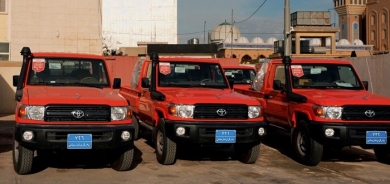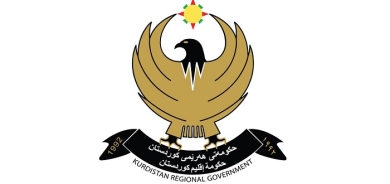Iraqi Ministry of Displacement and Migration Facilitates Return of Displaced Yezidis to Sinjar

The Iraqi Ministry of Displacement and Migration has announced the return of over 185 Yezidis who were previously displaced to Sinjar, as part of ongoing efforts to address the issue of displacement in the country. These individuals had been residing in displacement camps located in the Kurdistan Region's Duhok province. However, it is important to note that thousands of other Yezidi community members continue to remain in camps in the same region.
The Kurdistan Region is currently hosting more than 116,000 displaced families, including Iraqis who were forced to flee their homes due to the fight against ISIS. Among them, over 60,000 Yezidi families are still residing in camps located in Duhok, as per official figures.
The return of this group of Yezidis comes at a time when Sinjar, a town with a Yezidi majority located in Nineveh province, is facing various challenges in terms of security, administration, and public services. These issues have been exacerbated by the atrocities committed by the terrorist group ISIS, which the United Nations has recognized as a "genocide" against the Yezidi community in August 2014.
Local residents and international humanitarian organizations have cited factors such as the presence of militia forces, lack of reconstruction, and compensation funds as hindrances to the return of displaced Yezidis. International NGOs have expressed concerns about the forced return of the displaced population, fearing that it could worsen the already vulnerable conditions faced by the community.
To address the administrative and security situation in Sinjar, the Iraqi government and the Kurdistan Regional Government (KRG) signed a deal called the Sinjar Agreement in September 2020. The agreement aimed to transfer local authority to the Yezidi population and facilitate a voluntary and dignified return of the displaced population.
However, the implementation of the Sinjar Agreement has faced challenges, including the presence of militia forces and other factors, according to informed sources. The KRG has repeatedly urged the Iraqi government to intensify efforts to implement the agreement, as it is seen as a crucial step toward facilitating the return of the Yezidi population to their homeland.
As part of its commitment to addressing displacement in the country, the Iraqi government has closed down all displaced camps under its jurisdiction. However, concerns remain among international NGOs regarding the forced return of displaced populations, emphasizing the need for ensuring the safety and well-being of the Yezidi community during the return process.
Efforts to address the situation in Sinjar and provide a sustainable solution for the Yezidi community remain ongoing, with the hope of achieving a voluntary and dignified return of the displaced population while addressing their security, administrative, and public service needs.













